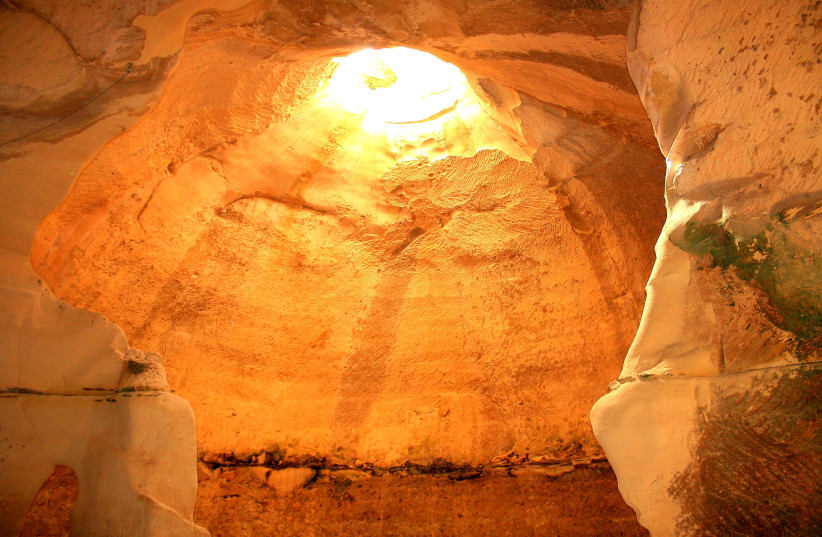Skulls and lamps found in the Twins Cave in the Jerusalem Hills indicate that the cave was used for necromancy rituals, according to a study that was published last week.
Necromancy is the practice of speaking to or reviving the dead.
The study, which was published in the peer-reviewed Harvard Theological Review, detailed and analyzed the archaeological finds of about 120 well-preserved lamps and a collection of coins dating to the Late Roman and Early Byzantine eras (second to fourth centuries CE).
Alongside the lamps and coins, the archaeologists also found two Bronze Age spearheads and a Bronze Age juglet.
The various items, spanning three different eras, were found embedded in crevices in the cave, leading archaeologists to believe that the earlier objects had been removed and put back over time with the newer ones.
Three skulls were also found in the cave placed together with the lamps, but no other bones were found. Initially, the archaeologists believed the skulls had been brought over by rats, but the specificity of their placement convinced them that they were intentionally put with the other items.

An analysis of the objects together with the skulls led the archaeologists to theorize that the cave had been used as a spot for necromancy. The analysis had to rely on the items and their location because necromancy was generally frowned upon by ancient Greek and Roman establishments, so no typographic evidence would have been present to identify the spot as a site of necromancy.
The study goes on the explain that necromancy rites were generally conducted in caves and tombs with water sources that were believed to be portals to the underworld. Such locations were generally located near almost every city in the Greco-Roman world.
Various cultures have record of skulls used in necromancy
Various textual sources chronicle the use of necromancy in the Greek and Roman worlds as well as the Levant and ancient East. These rites are also mentioned throughout Jewish texts like the Bible and the Talmud, indicating that at the time, it was a practice held by or known to all sectors and religions of the area.
The power the head was believed to hold is prevalent throughout mythology in stories of people getting prophecies from Orpheus' head and Perseus beheading Medusa.
In light of the skulls and the lamps and spearheads, which were also common elements of necromancy rituals, the study concludes that the site was very likely to have been used as a location for necromancy rituals but says that even though the cave was near a Jewish community, it probably wasn't used by them but only by non-Jewish residents.
